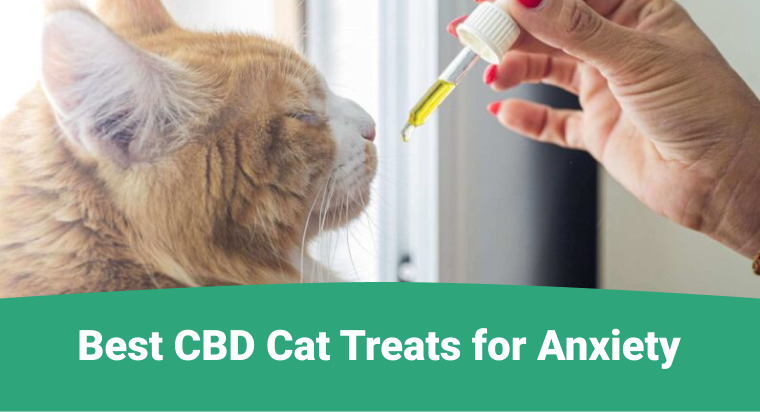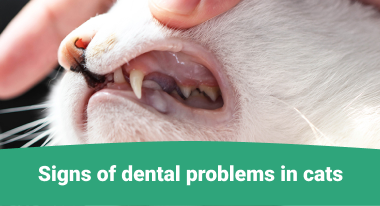Table of Contents
Is your cat lethargic, has heavy breathing, and is disinterested in its favorite cat treats? It may be the signs of Anemia caused by the deficiency in red blood cells in a feline’s circulatory system. It is a severe health condition often caused due to other underlying health issues. However, Anemia in cats can be cured if the signs are caught early, and consult the vet as soon as possible when you witness any symptoms. Along with the clinic treatment, specific natural dietary remedies also help prevent feline Anemia.
In this article, we have discussed the prevalent causes of Anemia among felines and treatment and compiled a list of the prevention tactics for feline Anemia. Let’s have a look at:
What Are The Causes of Anemia In Felines?
Before going into details about feline Anemia and its causes, let’s take a glance at the types of Anemia in cats. There are primarily two types of Anemia: Regenerative Anemia and Nonregenerative Anemia. Let’s check out the causes behind these and clarity on them:
- Regenerative Anemia & Causes
Regenerative Anemia can be subcategorized based on the causes, i.e., blood loss anemia and hemolytic Anemia. When your pet suffers from a sudden and severe blood loss, it can lead to death 30 to 40% of total blood volume is lost. In Blood loss anemia, the cause is apparent, such as excessive bleeding after an injury.
However, if there is no apparent reason for blood loss, the vets closely monitor the other related cause causing the Anemia. Usually, other than excessive blood loss, other causes may include the inability to blood clotting, bleeding tumors, stomach ulcers, or parasites.
When your pet suffers from low-grade yet long-term blood loss, it results in iron-deficiency anemia. In kittens, this aspect is prevalently caused by parasites such as fleas, lice, or intestinal worms, and in senior cats, the most prevalent cause of long-term bleeding is stomach ulcers or tumors.
Hemolytic Anemia, which is also regenerative Anemia, occurs when the red blood cells are destroyed. The most common causes of Hemolytic Anemia are immune system dysfunction, diseases of the small blood vessels, injury, metabolic disorders, toxins, infections, and genetic diseases.
- Nonregenerative Anemia & Causes
The primary causes of Nonregenerative Anemia include nutritional deficiencies, chronic diseases, kidney disease, and disorders of the bone marrow. Poor diet or nutritional deficiencies can cause Anemia if your pet is malnourished and the nutrients required for the formation of the red blood cells are not available adequately in your diet.
Starvation also causes Anemia in cats due to vitamin and mineral deficiencies and inadequate protein, carbohydrate, and fat intake. The deficiencies which are primary causes of the ailment are iron, vitamin B6, copper, vitamin B12, riboflavin, niacin, and vitamin E.
Anemia of chronic disease is seen in cats due to long-term inflammation or infection, a tumor, liver disease, or hormonal disorders. Besides chronic kidney disease, another primary cause of Nonregenerative Anemia in cats is bone marrow disease.
Aplastic Anemia is a bone marrow disorder where the ability of bone marrow to grow new blood cells is affected. Many cats also develop Anemia from cancer treatment or from blood transfusions.
To make it precise for you to become aware of Anemia in cats, we have compiled the crucial facts about feline Anemia in the infographic. You can quaintly roll through illustrations to make yourself aware of the attributes associated with feline Anemia.

What Are The Common Symptoms Of Anemia In Cats?
When your cat suffers from Anemia, the symptoms vary depending on the severity, duration, and the underlying cause of the illness. However, the most common symptoms are decreased appetite, lethargy or lack of energy, rapid breathing, and shortness of breath.
If your pet is suffering from a more severe stage of Anemia, you may witness the following symptoms:
- Acute Weakness
- Pale or white gums
- Increased heart rate
- Yellow skin, gums, or eyes (Jaundice)
If your pet is showing any of the symptoms, it is vital to visit your vet as soon as possible. While it is always a best practice to keep a list of your preferred vet handy in case of emergencies, you also can check a vet by a top-rated vet in your area via the online directories such as GreatVet.
The platform allows you to find a vet based on different search criteria such as your zip code, metro city, and neighborhood. Besides, you also can book your vet appointment from the platform within just a few clicks. And exploring the clinic profiles can get the driving directions to the clinic you have chosen.
How Vets Diagnose Anemia in Cats
To diagnose Anemia in your pet vet recommends diverse tests to pinpoint the underlying cause based on your cat’s symptoms. The blood test that is performed for Anemia in your pet includes
- Red Blood Cell Count
- Hemoglobin count
- Complete blood cell count (CBC)
- Packed cell volume (PCV) or Hematocrit
To narrow down the causes, vets are also seen to perform specific other tests such as bone marrow biopsy, Biochemical profile, and urinalysis or facial exam. Bone marrow biopsy is done to check its functionality, and the biochemical profile and urinalysis help to observe the organ failure and check electrolyte levels. Facial examinations are done to examine any evidence of intestinal parasites which could cause Anemia.
Usually, the vet makes the diagnosis after a comprehensive examination of your pet’s physical condition, health history, clinical signs, iron testing, urinalysis, bone marrow testing, and complete blood cell counts. Besides the initial step of the diagnosis, a packed cell volume or PCV test is done.
How To Treat Anemia In Cat
Treating Anemia in cats depends on the cause and severity of the disease. We have explored veterinary treatments and bought insights into natural dietary remedies to cure feline Anemia. Pet parents can discuss these with their veterinarians before starting any treatment regimens. Let’s have a look at:
Veterinarians’ Treatment To Cure Anemia In Cat
- If the Anemia in your pet is severe, the vet may suggest the diagnosis, and hospitalization is required to save your puffball’s life. In addition to blood transfusion, the vet also may recommend antibiotics or immune-supportive treatments. The vet also suggests iron supplements based on the cat’s condition.
- In case of, for instance, treatment for parasites or infectious diseases to stop the blood loss and destruction of red blood cells, medication is used. Vets also prescribe medication to stop bleeding from the gastrointestinal tract.
- If your pet’s Anemia is due to chronic kidney disease, specific medication and weekly injections are prescribed. Besides, in such cases, monitoring for side effects is required. For kidney disease vet also may recommend long-term hormone treatments to aid in red blood cell production.
- The veterinarian also may recommend changes to your feline’s diet and medications. As a whole, the medical professional works on developing a tailor-made treatment plan for a pet’s specific needs.
Natural Dietary Changes To Cure Feline Anemia
- If you are searching for ways to prevent and cure Anemia in felines, naturally dietary changes may help. If your pet has kidney ailments, you can opt for cat food specially designed for felines with kidney disease, but a strict veterinary consultation is required here.
- The vet also may recommend high-iron cat food for your kitten to uplift the iron level. You can add chicken and turkey to your pet’s diet as they have good sources of iron. You can also utilize the iron supplement consultation with your vet; however, avoid using iron supplements if the vet has not recommended them.
- Besides, make sure they are eating a balanced diet. Cats need plenty of protein and vitamin B12 to stay healthy. Also, consult with your vet, and if they recommend your pet, give them plenty of fluids. They need to stay hydrated to maintain their health.
- Make sure they are getting sunlight and fresh air. These simple steps will help your cat improve their overall health and fight off Anemia.
How Can You Prevent Anemia In Cats?
One of the great ways to prevent Anemia in cats is by providing them with a diet that is rich in meat & animal products. Prior to weaning kittens require 20–25 Calories/100 grams of body weight and adult cats need to consume around 40–45 calories/ kg to meet their nutritional needs. Although some cats will consume a small amount of vegetables, most prefer to eat meat. Some good meat sources for cats include chicken, turkey, beef, lamb, pork, fish, and eggs.
Another way to help prevent Anemia in cats is by getting them vaccinated against the feline leukemia virus (FIV). Ensure your cat has regular blood tests to check their blood chemistry and count. If your cat’s blood chemistry or blood count is low, take them to the veterinarian for a consultation and diagnosis. Also, ensure to go for flea prevention tactics, take your felines for flea and tick control, and schedule routine exams.
Final Thought
With the proper prevention and appropriate treatment, you can cure Anemia in your pet. While some natural dietary changes can be helpful, it is of utmost importance to work closely with your vet to cure the ailment. Ensure to update your vet before changing your cat’s diet or other lifestyle elements. When you notice any signs or symptoms of Anemia in your cat, make an appointment with your vet right away.
Disclaimer: The content on the site is for educational purposes only, and it does not provide medical advice. The shared information must not be treated as a substitute for or alternative for medical practitioner advice, diagnosis, or treatment. Regarding any concerns about your pet’s health, seeking veterinary guidance is of utmost necessity. Each pet has specific health, fitness & nutrition needs. Do not disregard, avoid or delay pet health-related advice from veterinarians based on reading the information provided on this site.



